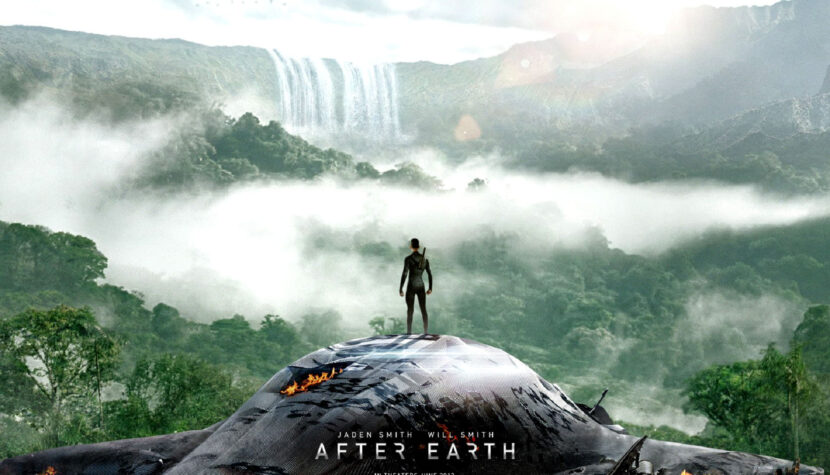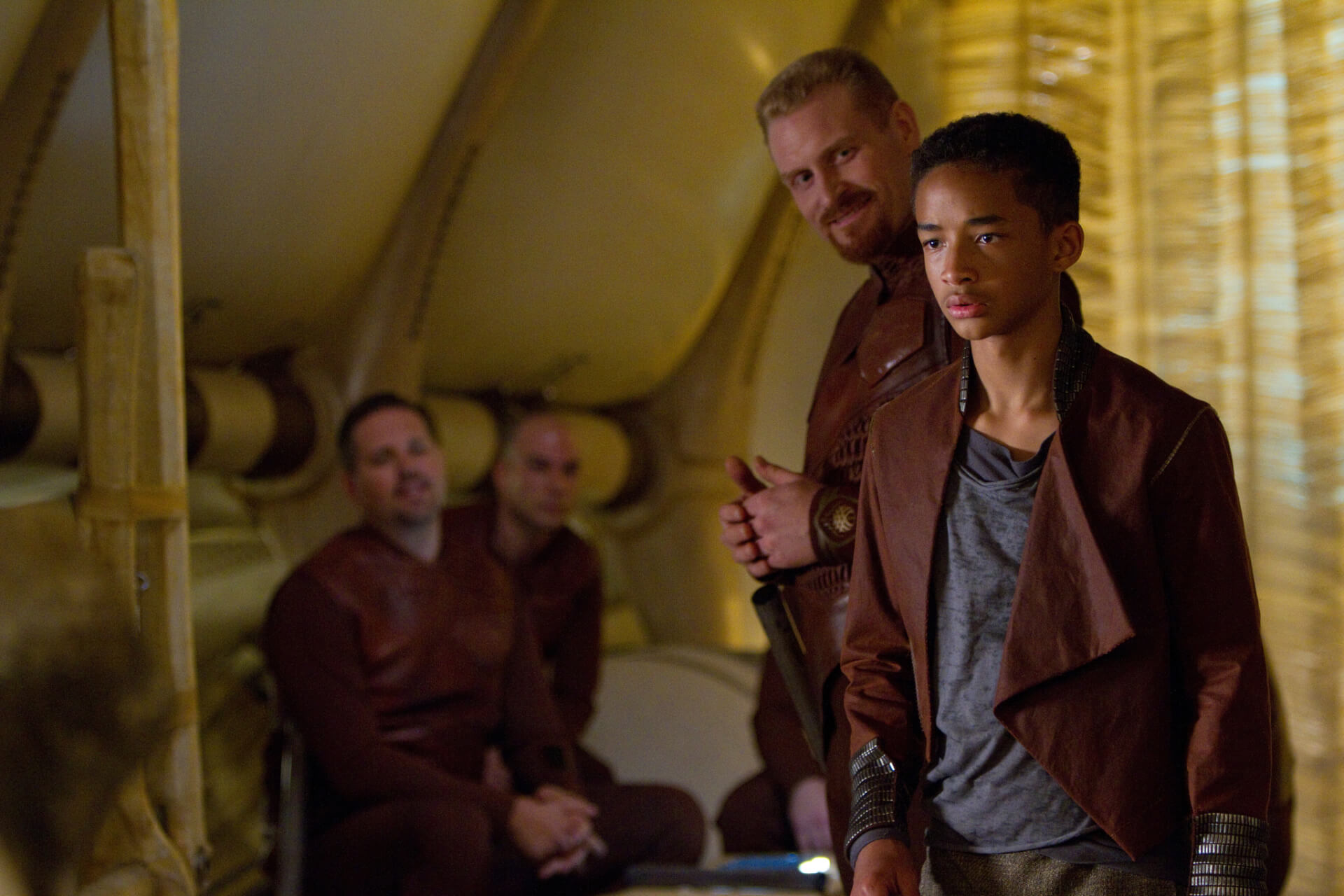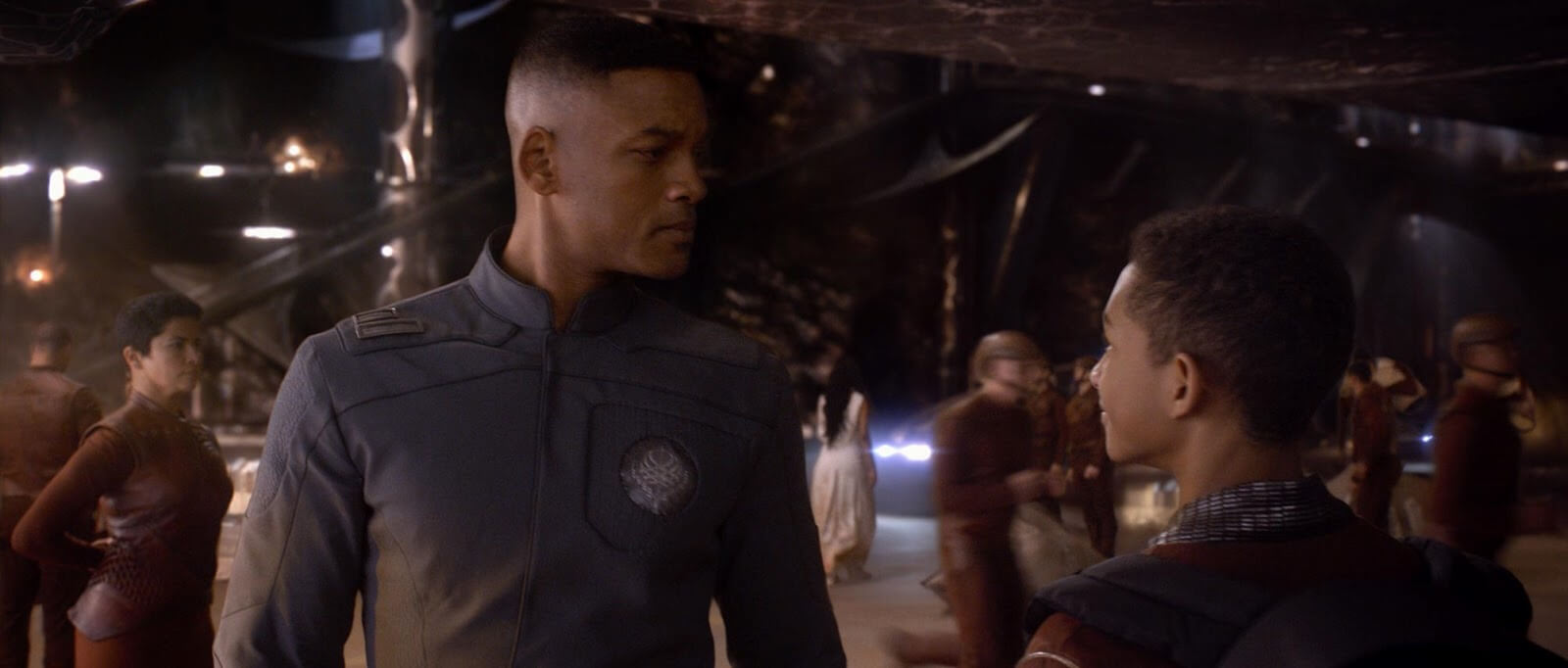AFTER EARTH. Surprisingly solid piece of science fiction

After Earth, a science fiction film that a significant group will ignore for the simple reason that it is directed by the creator of The Sixth Sense. But don’t worry, as film is far from the class of Unbreakable or The Village, it’s still surprisingly good.
In After Earth humans will not inhabit Earth anymore but Nova Prime. Human activity and numerous cataclysms have destroyed our planet, but not to the extent that nothing remains. The military hero, General Cypher Raige, and his thirteen-year-old son, Kitai (played by real-life father and son, Will and Jaden Smith), are the only survivors of a spaceship crash. The father has both legs broken, so it depends on the teenager whether he can cover 100 kilometers to find a beacon and call for help. Dangerous animals, changing weather conditions, and something that flew with them on board the ship will be lurking, but Kitai will primarily face his own fear, which, as his father says, is only a matter of choice.

Shyamalan’s work has always revolved around family, often exploring the challenging relationships between its members. These conflicts were more interesting (and more important) than aliens in Signs, monsters in The Village, or ghosts in The Sixth Sense – in other words, what, bluntly speaking, sold those films. The bait for viewers in After Earth is, of course, the science fiction setting and the dangers lurking on our planet, but those interested only in spectacle will leave the cinema disappointed. The vision of the future and the new Earth is not original, and the only thing of interest is Kitai’s multifunctional suit. The execution also leaves much to be desired – while the appearance of Nova Prime is well-developed, the interiors of homes and spacecraft are cheap-looking and have a very minimalist design. The computer-generated animals are even worse, reminiscent of the antelopes from the prologue of I Am Legend. Fortunately, not everything looks artificial – Ursa, the space monster, is a top-notch creation by the special effects team.

Shyamalan is not solely relying on science fiction in After Earth, and what is most interesting in it is the relationships between father and son, as mentioned earlier. The young man wants to match his heroic father, while the latter treats him with evident distance and military coolness. To win the war against the cosmic invader, Cypher had to rid himself of fear, but it seems that he also lost typical fatherly instincts along with it. He doesn’t really know how to talk to Kitai, so he issues orders. That he can do. This lack of sentimentality will turn out to be beneficial in situations that require quick thinking and action. The son, on the other hand, is tormented by a traumatic event from the past, blaming himself for the death of a loved one. He often reacts too emotionally but can utilize the lessons his father tries to convey. Shyamalan tells a simple and short story, realizing at the same time that it is more of a starting point for rebuilding the relationship than the actual transformation of both characters – some will still just salute, while others will react more emotionally.

The theme of confronting one’s own fear is not foreign to Shyamalan. A new situation, especially a dramatic one, always activates the hero who, to deal with external adversities, must first look into himself. General Raige explains to his son that we fear what is in our heads, something that isn’t really there. It’s just an imagined danger that may not even come. Considering that these words are meant for a thirteen-year-old and come from a soldier, they are not literal or typically Hollywood-like. This unforced simplicity works in favor of the film, even though the dialogue falls far short of the level of Bruce Willis and Haley Joel Osment’s conversations in The Sixth Sense.

In After Earth, the director finally remembers what the rhythm of the story is. Although I love the atmosphere in The Happening, I consider it too apathetic towards the story it tells. It’s much worse with The Last Airbender because the flaw lies in the script, which, in the 100-minute film, wants to encompass events from a 22-episode season of the series lying at the heart of the film. As a result, Shyamalan rushed to fit key scenes into the plot, leaving his characters to themselves. The new film doesn’t captivate with fast action, but it cannot be called dull. Its leisurely pace works well both with Kitai’s journey through the unfriendly Earth and the developing relationship between him and Cypher. In the meantime, the director does not hesitate to scare the viewer multiple times, usually with drastic views of torn monkey bodies and humans impaled on trees.

It is worth noting that this is not Shyamalan’s authorial project. Apart from directing, he improved the screenplay by Gary Whitta, but After Earth is primarily Will Smith’s child, according to his idea, produced (along with his wife) and performed (together with his son). The story is simple and predictable, often of dubious entertainment value, but Will Smith’s acting – both younger and older – is solid. The character of Shyamalan’s writing is recognizable, and the story itself corresponds to his interests and temperament. Previously, he was criticized for funny lines and weak direction, especially in the context of big-budget cinema. Many may still not believe in Shyamalan, but After Earth is proof that he can surprise us again. Positively.

